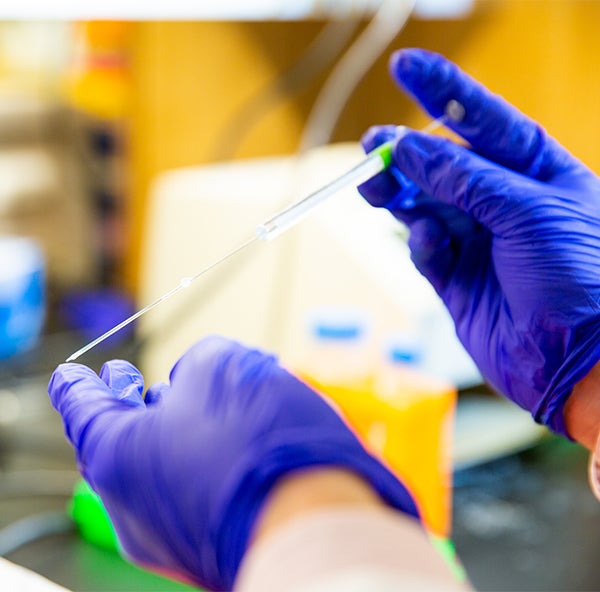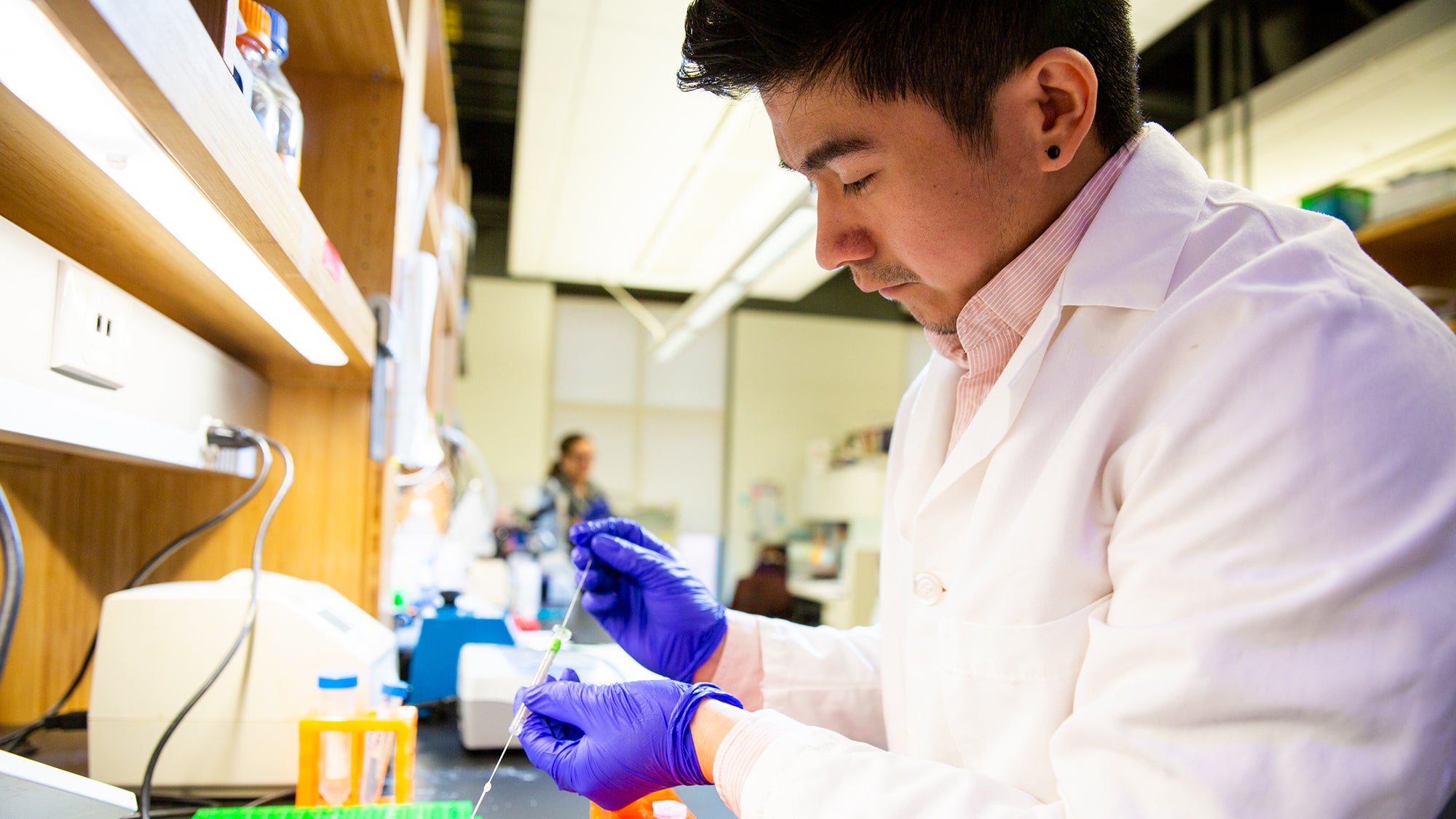Degree Pursuing: Ph.D. from Georgetown’s Interdisciplinary Program in Neuroscience
Undergraduate: Austin College, 2017
Undergraduate Major: Biology; neuroscience minor
Hometown: Uvalde, Texas
His Research Explained: Melchor’s research interests include neurodegeneration, neuron-glia interactions as well as cellular and molecular neuroscience.
His current MS research explores ways to identify the molecular signature of central nervous system regeneration. MS is a neurological disorder characterized by the progressive failure to regenerate a type of brain cell called oligodendrocytes.
“We’re analyzing cellular responses to build a cell type-specific database to better understand what molecular mechanisms underlie the potential for recovery,” Melchor explains.
Choosing the Sciences: Melchor began his undergraduate education at Southwest Texas Junior College, in his hometown. He later transferred to Austin College, where he was drawn to the school’s new science initiatives.
“I left community college with aspirations to conduct research,” says Melchor, who majored in biology. “And research was well-integrated into the science courses at Austin.”
As Austin’s first student to graduate with a neuroscience minor, he became intrigued with the brain. He also conducted cancer biology research with his faculty mentor.

A Professor’s View: The Ph.D. candidate conducts his research in Jeffrey Huang’s Laboratory of Glia Biology. The lab focuses on mechanisms of MS recovery and glia, non-neuronal cells within the central nervous system.
“George is a talented student who is filled with enthusiasm for science,” says Huang, associate professor of biology at Georgetown. “He is highly inquisitive and dedicated to his research. It’s wonderful to have him in our lab.”
Being a Patrick Healy Graduate Fellow:
“It really was amazing to come into my graduate program with this fellowship,” Melchor says. “Having the funding for five years gave me the freedom to find the best mentor and lab in which to pursue my research goals.”
Why Georgetown?:The second-year doctoral student chose the university because of the interdisciplinary nature of neuroscience at Georgetown.
“Neuroscience encompasses so many departments here,” he says.
Melchor adds that the interdisciplinary work at Georgetown speaks to the collaborative environment he found within the Graduate School of Arts and Sciences and other programs at the university.
“My classmates and I look for opportunities to advise and mentor the first-year class of neuroscience students, and we still have older students doing that for us,” he says. “This is the kind of collaboration that moves science forward.”
